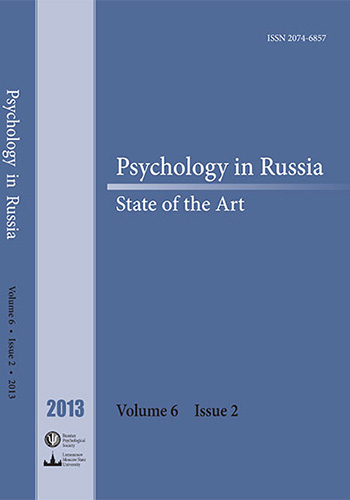Psychology in Russia: State of the Art, Moscow: Russian Psychological Society, Lomonosov Moscow State University, 2013, 2, 120 p.

2013
Volume 6 (02)
Volume 6 (02)
Social Psychology
Psychology of Education and Learning
-
Multimethod approach to measuring values in a school context: exploring the association between Congruence — Discrepancy Index (CO DI) and task commitment
-
Structural dialectical approach in psychology: problems and research resultsPDF HTML16613“ CITE
Nikolay E. Veraksa, Anastasiya K. Belolutskaya, Irina I. Vorobyeva, Eugene E. Krasheninnikov, Elena V. Rachkova, Igor B. Shiyan, Olga A. Shiyan (2013). Structural dialectical approach in psychology: problems and research results. .Psychology in Russia: State of the Art, 6 (2), 65-77
copied
Clinical and Health Psychology
-
Cultural-psychological and clinical perspectives of research on phenomena of subjective uncertainty and ambiguity
-
Psychological underpinning of personalized approaches in modern medicine: syndrome analysis of mitral valve prolapsed patients
-
The siege of Leningrad (1941–1944): memories of the survivors who have lived through the trauma









